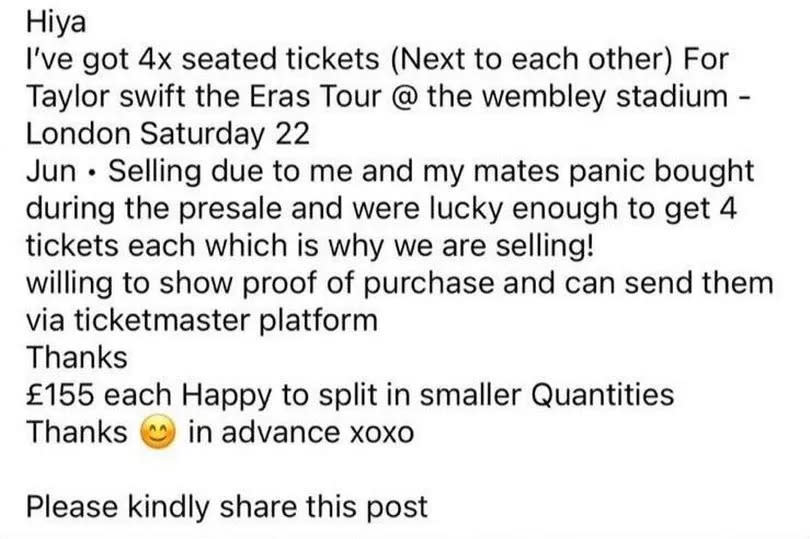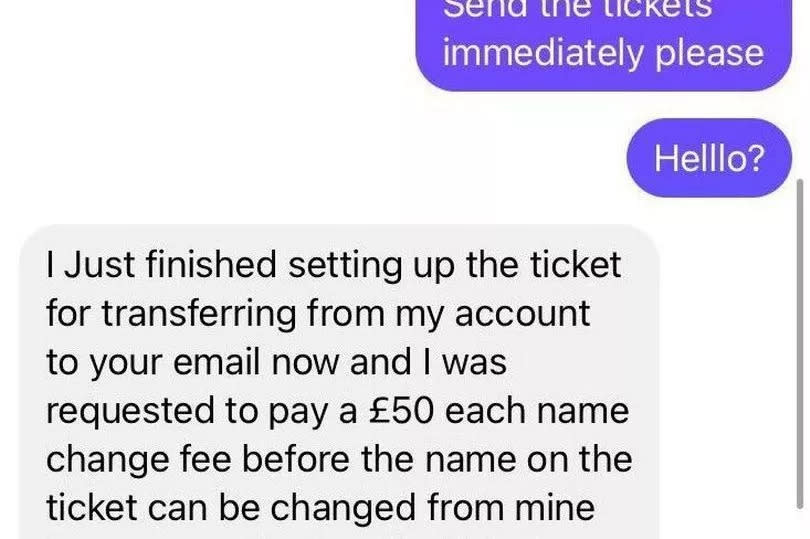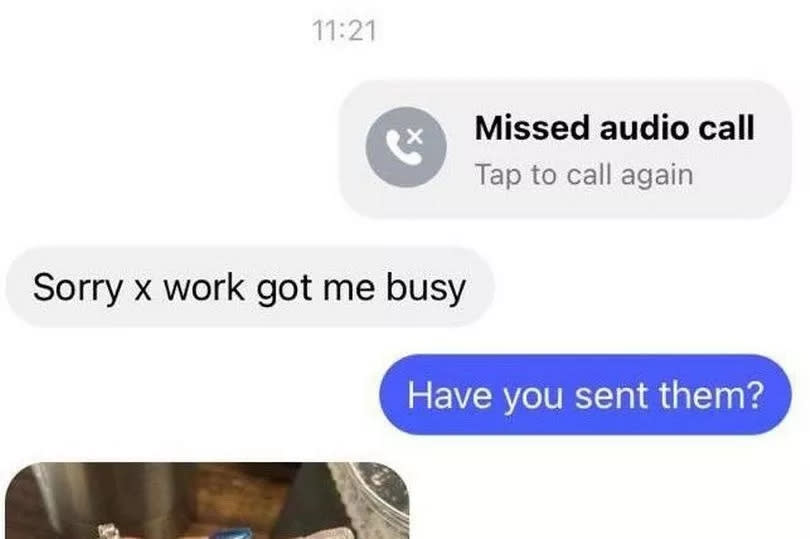'We lost £620 trying to buy tickets to Taylor Swift Eras tour'

A woman who was conned out of £620 in a bid to secure Taylor Swift concert tickets has shared the moment she realised she had been tricked. Aimee Brough, along with her sisters Maisy and Fleur and partner Jonathan, were trying to get hold of tickets for the pop sensation's June 23 show.
Their luck seemed to change when Maisy stumbled upon a Facebook post advertising tickets for the London gig, posted by a colleague's friend. Comforted by the fact that the seller wasn't a complete stranger, the sisters contacted her to purchase four tickets at £155 each. They requested proof of the tickets' authenticity before proceeding with the payment, which the seller provided.
The seller then requested payment via an online banking link with Monzo, reports the Manchester Evening News. Believing the transaction to be genuine, Aimee, a partnerships manager residing in Manchester city centre, transferred the £620 in three separate transactions due to the bank's payment limit.
READ MORE: Taylor Swift Eras Tour live updates as Cardiff prepares for Principality Stadium show
READ MORE: 'I sat outside the stadium to listen to Taylor Swift - don't make the same mistake as me'
The sisters eagerly awaited their tickets but were met with silence. Aimee, 28, watched as the money left her Monzo account and repeatedly refreshed her emails hoping to see the tickets. After waiting for a while, they contacted the seller who assured them she was busy at work and the tickets would be sent soon.
However, after about 30 minutes, the sisters realised something was amiss. After their attempts to contact the seller failed, the sisters repeatedly asked for updates until she eventually responded, demanding an additional £200 for a name change on the tickets.

Aimee realised they had been duped when she said: "We thought, no, it costs £3 to change the name." She recounted her sinking feeling: "I started Googling Taylor Swift scams and I thought, 'Oh God, are we going to become one of these victims? '".
The situation escalated when they requested the tickets first, but the seller insisted on receiving the money for the name changes beforehand. Feeling defeated after an hour, Aimee expressed her frustration: "We gave up after an hour. We felt really deflated, really upset and I just felt so stupid because I see myself as quite savvy and on with these things. I go to concerts all the time and I've bought resale tickets before."
Reflecting on the misplaced trust due to a colleague's connection, she admitted: "I thought because of the connection with the colleague we could trust them. We trusted that link way too much."

Aimee now suspects that the seller's Facebook account was genuine but compromised by scammers peddling bogus tickets. Their excitement turned to disappointment as she mentioned: "We were too excited," and shared how they had begun making arrangements to stay with family in London and were looking into train fares.
Despite opening a claims dispute with Monzo, Aimee is not hopeful about recovering the funds, stating: "I opened a claims dispute on Monzo and was reading that it's unlikely we will get our money back. There's some hope we could but I'm not optimistic."
Aimee wants to prevent others from falling into the same trap, admitting the ordeal made her feel "stupid" and emphasising the importance of sharing her experience.

"I feel really stupid," she admitted. "I should have asked more questions throughout. I thought I was quite savvy but their tricks are so clever. We're out of pocket now and it's a lot of money for us. We're really upset about that but gutted we can't go and see Taylor in London."
A Monzo spokesperson advised: "We urge customers to be vigilant when buying things on social media - with over 70% of these kinds of scams originating online - and to take steps to protect themselves by using trusted sites and ending the conversation if something doesn't feel right."

 Yahoo News
Yahoo News 
